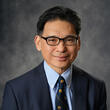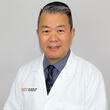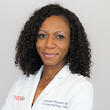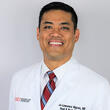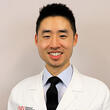Program Overview
The Kirk Kerkorian School of Medicine at UNLV Otolaryngology - Head & Neck Surgery Residency Program in Las Vegas began in 2012 after receiving ACGME-accreditation. It was the first post-graduate training program in otolaryngology in the state of Nevada. The training program was formerly affiliated with the University of Nevada School of Medicine. In July 2017, in conjunction with the opening of the Kirk Kerkorian School of Medicine at UNLV, the department of otolaryngology - head & neck surgery was established, comprising of the same Las Vegas-based otolaryngology faculty.
While the otolaryngology - head & neck surgery residency at UNLV is one of the more recent-accredited programs, the otolaryngology - head & neck surgery faculty have had many years of experience training residents at other academic institutions.
Currently, we are on an alternating 1-2-1 enrollment for otolaryngology residents, having received the approval of an extra half resident per year in 2020 to reflect the rapid growth of the residency program. The residents have naturally been a close-knit group who have been extremely supportive of each other which enhances their learning experience.
Our program is dynamic and growing. We are continuing to add faculty and subspecialists to provide the most comprehensive clinical services for our patients and training for our residents. We look forward to training the next generation of otolaryngologist.
Contact
1701 West Charleston Blvd., Ste. 490
Las Vegas, NV 89102
Please contact us about questions you may have regarding your application to the program and interview.
Phone: 702-671-6474
Email: otolaryngology.residency@medicine.unlv.edu
Program Leadership
Curriculum
The curriculum is designed to offer trainees a complete and balanced otolaryngology experience. There is a mix of advanced subspecialty, tertiary level cases, along with “bread and butter” otolaryngology throughout the five-year curriculum. The rotation schedule design allows residents to rotate through most of the core faculty and otolaryngology subspecialties each year. This allows for individualized, graduated progression for each resident as they work with each attending in a master-apprentice model with the goal of training well-rounded, exemplary comprehensive otolaryngologists.
During internship and junior residency (PGY-1 through PGY-3), residents will have rotated through general surgery, auxiliary services pertinent to otolaryngology, and all the major otolaryngology subspecialties. They will learn how to evaluate and manage the full breadth of otolaryngology pathology in the clinic, the hospital, the operating room, and the postoperative surveillance period. Residents have three months of protected research time during their PGY-3 and/or PGY-4 where they develop their own projects from study conception/design to data collection/analysis. As senior residents (PGY-4 and PGY-5), trainees continue to develop their surgical skills and improving their clinical acumen. Senior residents are expected to have completed their research projects prior to graduation. They are also expected to play a role in the education of the junior residents and rotating medical students. During their chief year, residents take on administrative duties in overseeing the hospital service line, the resident clinic, and facilitating resident-related issues.
Throughout the year, didactic lectures feature a mix of Grand Rounds, resident lecture topics, morbidity and mortality report, and interdisciplinary conferences. We host dedicated cadaver courses where residents receive directed dissections of the head and neck, anterior skull base, lateral skull base, microvascular surgery, and craniomaxillofacial surgery. Residents are also provided similar courses outside the university to receive additional experience and teaching from master educators at other otolaryngology programs.
Rotations
Otolaryngology interns (PGY-1) rotate with general surgery, plastic surgery, pediatric surgery, anesthesiology, surgical intensive care, and neurosurgery over six months. During this time, the PGY-1 residents will assess, plan and initiate treatment of adult and pediatric patients with surgical and/or medical problems. They will be expected to differentiate between emergent and non-emergent situations, and care for patients of all ages with surgical and medical emergencies, multiple organ system trauma, soft tissue wounds, nervous system injuries and diseases, and peripheral vascular and thoracic injuries. Residents will also care for critically ill surgical and medical patients in the ICU and emergency room setting, and participate in the pre-, intra-, and post-operative care of surgical patients. In addition, residents will assist in surgical anesthesia, including evaluation of anesthetic risks and management of intra-operative anesthetic complications. Activities will foster proficiency in the peri-operative care of surgical patients, inter-disciplinary care coordination, and airway management skills. Six months of internship are spent on otolaryngology - head & neck surgery under the supervision of the otolaryngology faculty, where residents will cultivate their otolaryngology knowledge base.
Otolaryngology residents graduate with a strong head and neck surgery experience. We are the only group performing high-volume head and neck surgery within a catchment area that includes not only Southern Nevada, but also Northern Arizona, Southern Utah, and California. Residents will see and treat head and neck cancers of a variety of pathologies, subsites, and treatment plans, including robotic and laser surgery. They will also acquire the skills to examine, diagnose, and take head and neck cancer patients through multi-disciplinary treatment plans.
Residents are expected to graduate with the skill set necessary to perform extirpative open neck surgery, neck dissection, salivary gland surgery, surgical treatment of mucosal and cutaneous head and neck cancers, and thyroid and parathyroid surgery. A multi-disciplinary tumor board meets twice a month to discuss challenging patient cases.
The otology-neurotology experience will provide the residents with the gamut of pathologies ranging from chronic ear disease, hearing loss, vestibular disorders, facial nerve disorders, temporal bone, and lateral skull base tumors. Residents will acquire outpatient skills in the diagnosis and treatment of otologic/neurologic disorders, interpretation of audiologic and vestibular testing (audiograms, tympanograms, ABRs, ECOGs, VNGs, and VEMPs), office myringotomy and tube placement, and intratympanic drug therapy. A familiarity with pediatric hearing loss, implantable hearing device candidacy and programming, craniofacial disorders and their impact on hearing and balance, vestibular rehabilitation will be achieved by the residents, as well. When taking UMC calls, they will encounter and treat otologic emergencies, ranging from sudden hearing loss, dizziness, facial paralysis, and temporal bone fractures.
Attendance in the annual temporal bone dissection course is mandatory, where the resident will participate in a one-on-one instruction with attending otology staff. Access to independent temporal bone dissection outside the annual course is available.
Expectations of the graduating residents include proficiency in all aspects of chronic ear surgery: myringoplasty, tympanoplasty, mastoidectomy, ossicular chain reconstruction, and middle ear endoscopic surgery.
This is a comprehensive experience covering all aspects of pediatric otolaryngology including endoscopic and open airway procedures, cleft palate and velopharyngeal insufficiency, advanced sleep surgery, sinus disease, ear and hearing disorders, as well as head and neck and endocrine surgery. There is only one pediatric otolaryngologist in all southern Nevada, so the catchment area is broad and the patient population diverse. We are supported by a strong pediatric intensive care unit team and a level 3 neonatal intensive care unit. Residents spend time on this rotation during their second and fourth years.
In addition, several other providers perform common procedures on children, such as myringotomy tubes and adenotonsillectomies, so residents will still have the opportunity to learn different methods and techniques for these surgeries.
Residents develop a strong foundation in facial plastic and reconstructive surgery with multiple attending faculty specializing in facial plastic surgery and head and neck microvascular reconstruction. Throughout the training program, residents have a strong hands-on experience in functional and cosmetic rhinoplasty. They also gain an ample, but not overwhelming experience, in the management of soft tissue and bony facial trauma. In the resident clinic, they regularly perform minor cosmetic procedures including injectable neurotoxins and fillers.
Our trainees are also well-versed in complex head and neck reconstruction after tumor extirpation, osteoradionecrosis, and complex trauma and wound complications. They are expected to graduate with the ability to assess and perform a reconstructive plan using local tissue rearrangements and workhorse locoregional flaps – including pectoralis flaps, supraclavicular island artery, submental flaps, and temporalis flaps.
For the size of the residency, the program has a relatively high microvascular volume, allowing residents to perform and assist in microsurgery during their residency. Other areas of facial plastic surgery that residents gain exposure to include facial paralysis, facial rejuvenation including blepharoplasty and rhytidectomy, congenital auricular anomalies, oculoplastic surgery, and scar revision.
Otolaryngology residents acquire the skills for evaluating disorders of the voice, airway, and swallowing. They get experience evaluating, treating, and counseling laryngology patients in our specialty clinic and rotating with the sole fellowship-trained laryngologist in Las Vegas. Residents also rotate in the chairman’s spasmodic dysphonia Botox clinic. Las Vegas’ reputation as an entertainment destination provides residents with experience in treating voice professionals. In the operating theater, residents gain the skills to surgically diagnose and treat patients with laryngeal, tracheal, and esophageal pathology. They also have opportunities to learn and perform endoscopic microphonosurgery, open airway surgery, subglottic stenosis treatment and airway reconstruction, injection vocal cord medialization, and thyroplasty.
Otolaryngology residents have ample opportunity to hone skills in evaluating and treating patients with rhinologic disorders. They will see an array of patients from those that are medically and surgically managed, to those requiring multidisciplinary teams of pulmonologist and allergists. Residents will graduate with the skills necessary to perform simple and advanced endoscopic sinus surgery. In addition to endoscopic sinus surgeries, the department also performs endoscopic CSF leak repair and regularly provide endoscopic and microscopic approaches to the pituitary for neurosurgery.
The mission of the residency program is to educate our residents to become well-rounded, exemplary otolaryngologists with sound clinical judgment and a wide array of surgical abilities. Our trainees graduate residency ready to enter general otolaryngology practice. Between the plethora of educational opportunities, the depth of our subspecialty training, and our training model, residents graduate with the skills necessary to treat a wide array of general otolaryngology patients – medically and surgically.
Training Sites
Address: 1800 W. Charleston Blvd, Las Vegas, NV 89102
The University Medical Center of Southern Nevada (UMC or UMCSN) is the primary site for the Kerkorian School of Medicine Otolaryngology - Head and Neck Surgery Residency. It is a 564-bed county hospital and is a state-designated Level I Trauma Center. UMC also houses the Children’s Hospital of Nevada and the Lions Burn Care Center. Otolaryngology residents manage the UMC inpatient service and consult service line throughout their five-year residency. As the flagship hospital, residents will learn and perform the full spectrum of otolaryngology cases are performed at UMC. The most common procedures at UMC are head and neck oncologic surgery, head and neck microvascular reconstruction, craniomaxillofacial surgery, general otolaryngology, airway procedures, pediatric otolaryngology, facial plastic surgery, otology, and advanced sinus and rhinology.
Address: 5320 S. Rainbow Blvd, Suite 250, Las Vegas, NV 89118
UNLV Health is the Kirk Kerkorian School of Medicine at UNLV's group practice. The UNLV Health Otolaryngology - Head and Neck Clinic and Otolaryngology Resident Continuity Care Clinic are in the Southwest section of Las Vegas. The otolaryngology and head and neck surgery department is the largest provider of otolaryngologic care in Las Vegas, treating patients of all ages and levels of acuity. Subspecialty care in head and neck surgical oncology, otology/neurotology, pediatric otolaryngology, facial plastic and reconstructive surgery, advanced rhinology, general otolaryngology, and otolaryngologic allergy, thrive in this multi-disciplinary practice, providing the highest level of care to Las Vegas residents.
Address: 3100 N. Tenaya Way, Las Vegas, NV, 89128
MountainView Hospital is a 425-bed facility located in the Northwest area of Las Vegas, 9 miles northwest of from UMC along US-95. It is a full-service hospital and ER. It is also the home of the Las Vegas Institute for Robotic Surgery. Though residents operate at MountainView, they do not take consult calls or run an otolaryngology service line at this location. The residents' focus is on learning and performing head and neck surgical oncologic and robotic surgery, sleep surgery, endocrine surgery, advanced endoscopic surgery, and a variety of general otolaryngology procedures at MountainView Hospital.
Address: 3186 S. Maryland Pkwy, Las Vegas, NV 89109
Sunrise Hospital and Medical Center is a 700-bed medical facility located in the heart of Las Vegas, about 2 miles east of the Las Vegas Strip. It is about 4 miles southeast of the University Medical Center of Southern Nevada. Residents are not obligated to manage the otolaryngology service line at Sunrise. A diverse variety of otolaryngology procedures – including head and head and neck surgical oncologic and robotic surgery, endocrine surgery, advanced endoscopic sinus surgery, neuroendoscopic approaches with Las Vegas neurosurgeons, pediatric otolaryngology, cosmetic and reconstructive facial plastic surgery, oculoplastic surgery, and common general otolaryngology procedures – are performed at Sunrise Hospital and Medical Center.
Address: 8840 W. Sunset Rd, Las Vegas, NV 89148
Ear Nose and Throat Consultants of Nevada (ENT-C) is the largest ENT private practice in Las Vegas. The training site is in the Southwest area of town at Sunset Road and 215, about 4 miles from the UNLV Health Otolaryngology - Head and Neck Surgery Clinic. Residents rotate with their facial plastic surgeon, general otolaryngologists, and laryngologist, who is only fellowship-trained laryngologist in Las Vegas. Residents learn about professional voice, microphonosurgery, and dysphagia at ENT-C. The experience is designed to augment their residency by offering a private practice perspective and to put principles of business of medicine into practice. Residents will also operate with ENT-C otolaryngologists on their cases in facial plastic surgery, rhinology, endocrine surgery, and general otolaryngology.
Address: 7250 W. Cathedral Rock Dr, Las Vegas, NV 89128
Specialty Surgery Center is located in the Summerlin area of Las Vegas near MountainView Hospital. It is a freestanding, multi-specialty ambulatory surgery center, where a broad range of outpatient surgical procedures take place. The UNLV Otolaryngology - Head and Neck Surgery practice performs general adult and pediatric otolaryngology procedures, endoscopic sinus surgery, facial plastic surgery, and otology cases at Specialty Surgery Center.
Life After Residency
Allen Young, MD
Otology Fellowship at Silverstein Institute
Medical School: Johns Hopkins University School of Medicine
Undergraduate College: University of Alabama at Birmingham
Undergraduate Degree: B.S. Neuroscience
Nathaniel Reeve, MD
Rhinology Fellowship at University of Washington
Medical School: University of Alabama School of Medicine
Undergraduate College: Auburn University
Undergraduate Degree: B.S. Microbial, Cellular, and Molecular Biology
Jacob Kahane, MD
Neurotology Fellowship at the Louisiana State University School of Medicine
Medical School: Albany Medical College
Undergraduate College: Dartmouth College
Undergraduate Degree: Undergraduate Degree: B.S. Biochemistry
Harry Ching, MD
Facial Plastic Surgery Fellowship at the University of California, Irvine
Medical School: David Geffen School of Medicine at UCLA
Undergraduate College: University of California, Berkeley
Undergraduate Degree: Undergraduate Degree: B.S. Bioengineering
David Kim, MD
Head and Neck Surgery Fellowship at Oregon Health & Science University, Portland, OR
Medical School: Eastern Virginia Medical School of the Medical College of Hampton Roads
Undergraduate College: University of California - San Diego
Undergraduate Degree: B.S. Molecular Biology
Application Process
Application deadlines are the first of November each year. Interviews take place between December through January of each year. Otolaryngology - head & neck surgery is one of the most competitive specialties and attracts top medical student applicants each year.
